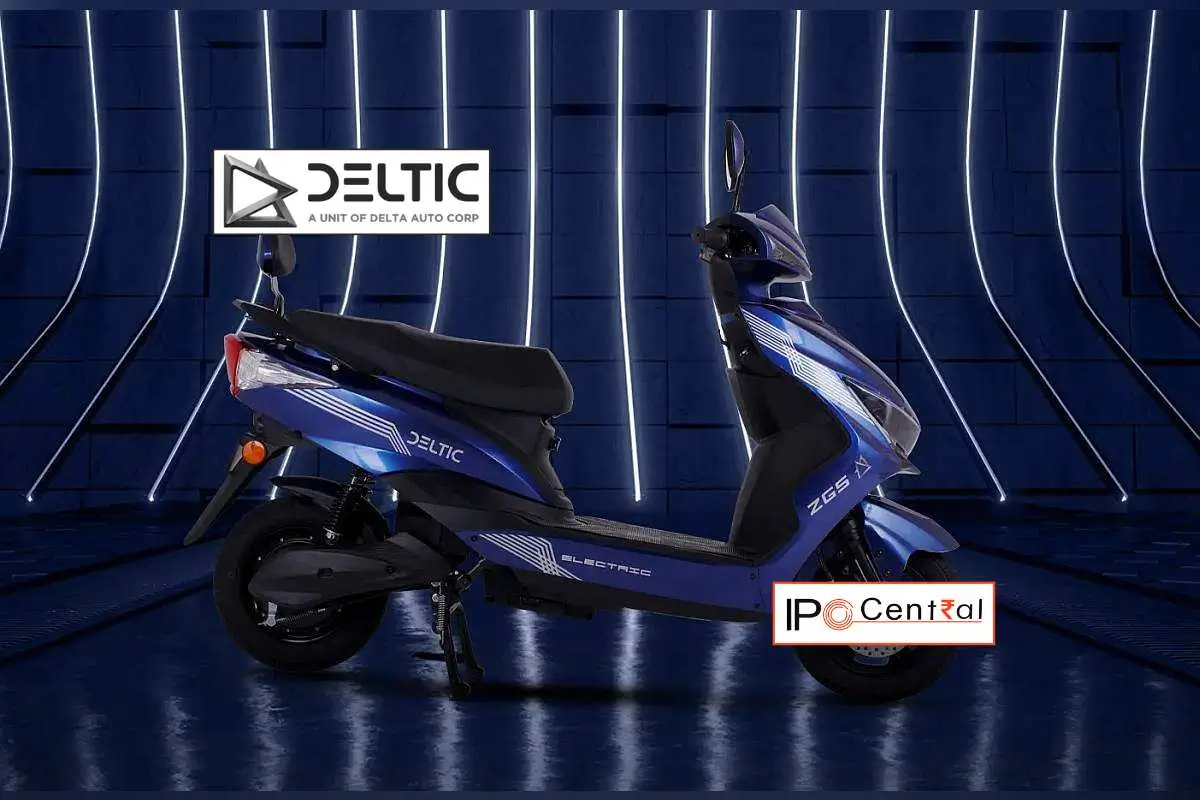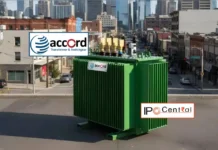New Delhi-based Delta Autocorp is a promising player in India’s electric vehicle (EV) segment and is set to launch its initial public offering (IPO). As India pivots towards clean energy and sustainable transportation, Delta Autocorp emerges as a company uniquely positioned to ride this wave of growth. Delta Autocorp IPO review provides you with the company’s prospects, financials, and key investment considerations.

Table of Contents
#1 Delta Autocorp IPO Review: Industry and Business Overview
Established in May 2016, Delta Autocorp operates in the rapidly growing Indian electric vehicle market. With India’s push for sustainable mobility and favorable government policies, the EV sector is witnessing exponential growth. The company primarily focuses on two-wheelers and three-wheelers, tapping into the mass-premium segment. India’s real GDP grew by 7.8% in Q1 of FY 2024, reflecting a resilient economy, which bodes well for emerging industries like EVs. Rising fuel prices and urban congestion have further increased demand for EVs, making Delta Autocorp’s market outlook highly favorable.
The Indian EV market is projected to grow at a CAGR of over 36% by 2030, driven by government incentives such as FAME-II subsidies and infrastructure support for charging stations. Delta Autocorp’s focus on affordable pricing and high-quality builds allows it to compete effectively in this fast-growing sector. As more cities enforce regulations for eco-friendly transportation, the demand for electric rickshaws and two-wheelers is expected to soar, creating ample opportunities for Delta Autocorp.
#2 Delta Autocorp IPO Analysis: Offer Details
Delta Autocorp is set to launch its IPO from 7 January to 9 January 2025, with a price band of INR 123 to INR 130 per share. The offering includes a fresh issue of 38,88,000 shares to raise capital for business expansion and an offer for sale of 3,12,000 shares by promoter Ankit Agarwal. This offering aims to raise approximately INR 54.60 crores, primarily for expanding manufacturing capabilities and enhancing product development. The IPO will be listed on 14 January 2025 on NSE EMERGE, with the retail quota capped at 35%.
As of 3 January 2025, Delta Autocorp’s IPO is trading at a Grey Market Premium (GMP) of INR 47. This implies a potential listing price of INR 177 per share, suggesting a premium of approximately 36.2% over the upper price band.
#3 Delta Autocorp IPO IPO Objectives
Delta Autocorp’s IPO comprises fresh equity shares to raise funds for:
- Establishing a three-wheeler fabrication and painting plant – INR 4.42 crore
- New product development – INR 21.32 crore
- Working capital requirements – INR 11.46 crore
- General corporate purposes.
This fundraising will enable Delta Autocorp to increase its manufacturing capacity, improve operational efficiency, and introduce new product lines tailored to meet market demand. The additional funds for R&D will support the company’s ability to innovate and adapt to changing technologies, keeping it competitive in the evolving EV landscape.
#4 Delta Autocorp IPO Analysis: Business Model & Market Position
The company operates under the “Deltic” brand and follows a dealer-centric distribution model with over 300 dealers across 25 states. Its product portfolio includes electric scooters and rickshaws that offer premium features at affordable prices, catering to tier-2 and tier-3 markets. This focus helps Delta Autocorp capture underserved markets while addressing functional and aesthetic needs.
Delta Autocorp’s dealer-first model ensures localized marketing efforts and personalized services for end-users. The company’s focus on affordability and durability has made it a preferred brand in areas where public transportation infrastructure is limited. By emphasizing energy efficiency and low maintenance costs, Delta Autocorp has created a niche in rural and semi-urban areas, where economic alternatives to fuel-based vehicles are in high demand.
#5 Delta Autocorp IPO Review: Strong Financial Performance
Delta Autocorp’s financial trajectory reflects robust growth and operational efficiency. The company has achieved remarkable revenue growth with a compound annual growth rate (CAGR) of 41.45% between FY 2022 and FY 2024. Below are key financial metrics that illustrate this performance:
| FY 2022 | FY 2023 | 1 Apr – 20 Jul 2023 | 21 Jul 2023 – 31 Mar 2024 | 7M FY 2025 | |
| Revenue | 57.13 | 80.02 | 17.74 | 63.07 | 45.18 |
| Expenses | 51.89 | 73.69 | 16.13 | 54.03 | 38.85 |
| Net income | 4.20 | 5.13 | 1.26 | 6.96 | 4.81 |
#6 Delta Autocorp IPO Review: Shareholder and Promoters Holding
Promoters and the promoter group hold 97.59% of the pre-issue equity share capital. Key shareholders include:
- The remaining shares are held by family members and HUF entities.
- Ankit Agarwal: 79.65% (90,82,124 shares).
- Priyanka Agarwal: 10.44% (11,89,778 shares).
This concentrated promoter holding reflects strong ownership commitment, which typically inspires investor confidence. The high stake retention by promoters ensures alignment of their interests with those of incoming investors.
#7 Delta Autocorp IPO Review: Comparison with Listed Peers
Compared to established EV players, Delta Autocorp focuses on mass-premium segments with competitive pricing and functional design. While its revenue base is smaller, the company’s focus on underserved markets and diversified product range gives it an edge.
In contrast to competitors targeting urban luxury segments, Delta Autocorp’s emphasis on affordability makes it appealing to budget-conscious buyers. Its streamlined operations and cost-efficient production strategies provide a price advantage over larger competitors.

#8 Delta Autocorp IPO Review: Strengths
- Strategic Market Positioning: Focused on tier-2 and tier-3 towns.
- Product Diversification: Offers both two-wheelers and three-wheelers.
- Quality Assurance: ISO-certified manufacturing processes.
- R&D Investment: Dedicated teams for innovation and development.
- Eco-Friendly Focus: Targets sustainable transport solutions aligned with government initiatives.
- Scalable Operations: Flexible production processes allow quick adaptation to demand spikes.
#9 Delta Autocorp IPO Analysis: Risks and Challenges
Investors should carefully consider the following risks associated with the IPO:
- Market Competition: Growing competition in the EV sector may pressure pricing strategies and profitability. Understanding these risks is essential for evaluating the investment potential.
- Supply Chain Dependencies: Reliance on third-party suppliers for critical components may impact production timelines.
- Regulatory Compliance: Adhering to stringent government policies and industry regulations poses challenges.
- Product Quality Assurance: Any concerns about quality control or product recalls can affect market perception.
#10 Delta Autocorp IPO Review: Should You Invest?
Delta Autocorp offers a unique investment opportunity in India’s burgeoning EV sector. Its focus on affordable, premium electric vehicles and strong distribution networks positions it for growth. However, potential investors should weigh the risks related to competition and financial leverage.
Investors with a moderate to high-risk appetite, looking for exposure to sustainable mobility and growth-focused businesses, may find this IPO attractive. As always, consult with your financial advisor before making any investment decisions.

































